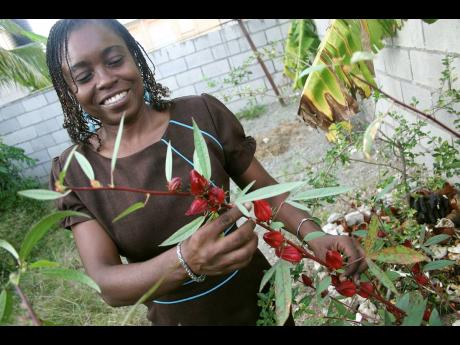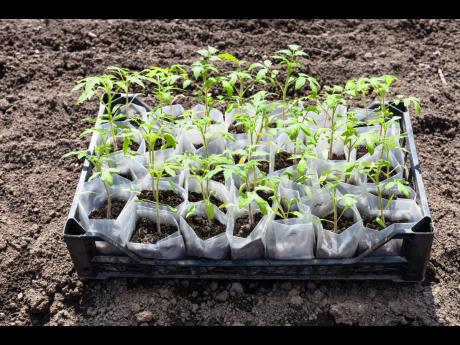Backyard gardening: Grow your own food, improve your health
Growing food is very simple. It takes a little time, but things like tomatoes, lettuce, peppers and basic kitchen crops are very forgiving. Really, anyone can learn to grow food pretty easily.
While growing your own ensures you have regular food available and provides fresh ingredients for your meals, it has other benefits that you may not have expected.
There is one important nutrient gardening can give you before you even take a bite of your produce, and that is vitamin D. The sun’s rays promote vitamin D production, which is vital to our health. Working in the garden for only 30 minutes a day can promote better sleep and positive energy.
Dr Rivane Chybar Virgo, medical doctor and health and wellness coach, said when you plant your own food, you know exactly what goes into the gardening process. You know the seed types you selected and where they came from. You are also aware of any challenges that came along the way. This is good for you, your family, and the environment.
“Nothing beats flavour and the nutrient-packed power of freshly picked fruits and vegetables. Once harvested, the produce begins to lose moisture and nutrients. Although the freshness of shop-bought vegetables is largely out of your control, when you have grown your own fruits and vegetables, you can know exactly when they have been picked and how fresh they are,” Dr Chybar Virgo said.
Gardening is also a fun, family-friendly activity that allows the children to get their hands dirty and learn where their food comes from. From planting seedlings to making salads together, starting a vegetable garden is a great way to get your family off the couch and on to their feet.
“Growing your own produce lets you control what ends up on your family’s table. You decide what fertiliser, water and pest control to use, as well as whether to grow organic,” she said.
Households that grow fruit and vegetables consume 40 per cent more fruits and vegetables per day than those who do not; those who grow their own are 3.5 times more likely to consume the recommended five portions of fruit and vegetables a day.
“One of the biggest advantages of growing your own food is that it can save you money. The price of a pack of seeds is almost equivalent to what you would pay for a single vegetable or fruit at the market. Plus, you can grow organic vegetables for a fraction of the cost for those brought from the market,” Dr Chybar Virgo pointed out.
Beyond the initial crop, you can learn to dry, can, and preserve your produce to keep feeding your family from your own garden, long after the growing season is over. This can extend your savings in the long term, too.
The sense of pride and accomplishment that comes from eating that first tomato or sweet pepper from your backyard will amaze you. It does not just have to be that first- ever crop either, that feeling often extends year after year.
Gardening can teach your children the value and benefits of hard work, and help them to achieve a similar sense of pride and accomplishment come harvest time. You will be able to nourish your family and ensure everyone is eating a healthy diet when you have a garden at your fingertips to incorporate those fresh fruits and veggies into each meal.
“Many people find gardening very rewarding – from the physical health side to the nutritional meal side. The benefits of gardening extend beyond the garden itself, into the kitchen, living room, and even daily life,” Dr Chybar Virgo said.
GARDENING TIPS
If you are interested in growing food in your backyard, here are a few tips that you can follow:
• Start small and plant things you would really like to eat.
• Pick a spot with at least six hours of good daytime light and access to water.
• Use contaminant-free soil.
• Consider using a raised garden bed, which allows you to control the soil and nutrient blend.
• Talk to farmers or other backyard gardeners in your area to get a sense of what grows well in your region and when.


